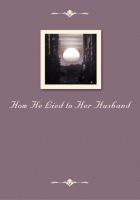Settling down at Carmel was an easy matter. The Iron Man had already departed to his Catholic college, and the "shack" turned out to be a three-roomed house comfortably furnished for housekeeping. Hall put Billy to work on the potato patch--a matter of three acres which the poet farmed erratically to the huge delight of his crowd. He planted at all seasons, and it was accepted by the community that what did not rot in the ground was evenly divided between the gophers and trespassing cows. A plow was borrowed, a team of horses hired, and Billy took hold. Also he built a fence around the patch, and after that was set to staining the shingled roof of the bungalow. Hall climbed to the ridge-pole to repeat his warning that Billy must keep away from his wood-pile. One morning Hall came over and watched Billy chopping wood for Saxon. The poet looked on covetously as long as he could restrain himself.
"It's plain you don't know how to use an axe," he sneered. "Here, let me show you."
He worked away for an hour, all the while delivering an exposition on the art of chopping wood.
"Here," Billy expostulated at last, taking hold of the axe. "I'll have to chop a cord of yours now in order to make this up to you."
Hall surrendered the axe reluctantly.
"Don't let me catch you around my wood-pile, that's all, " he threatened. "My wood-pile is my castle, and you've got to understand that."
From a financial standpoint, Saxon and Billy were putting aside much money. They paid no rent, their ****** living was cheap, and Billy had all the work he cared to accept. The various members of the crowd seemed in a conspiracy to keep him busy. It was all odd jobs, but he preferred it so, for it enabled him to suit his time to Jim Hazard's. Each day they boxed and took a long swim through the surf. When Hazard finished his morning's writing, he would whoop through the pines to Billy, who dropped whatever work he was doing. After the swim, they would take a fresh shower at Hazard's house, rub each other down in training camp style, and be ready for the noon meal. In the afternoon Hazard returned to his desk, and Billy to his outdoor work, although, still later, they often met for a few miles' run over the hills. Training was a matter of habit to both men. Hazard, when he had finished with seven years of football, knowing the dire death that awaits the big-muscled athlete who ceases training abruptly, had been compelled to keep it up. Not only was it a necessity, but he had grown to like it. Billy also liked it, for he took great delight in the silk of his body.
Often, in the early morning, gun in hand, he was off with Mark Hall, who taught him to shoot and hunt. Hall had dragged a shotgun around from the days when he wore knee pants, and his keen observing eyes and knowledge of the habits of wild life were a revelation to Billy. This part of the country was too settled for large game, but Billy kept Saxon supplied with squirrels and quail, cottontails and jackrabbits, snipe and wild ducks. And they learned to eat roasted mallard and canvasback in the California style of sixteen minutes in a hot oven. As he became expert with shotgun and rifle, he began to regret the deer and the mountain lion he had missed down below the Sur; and to the requirements of the farm he and Saxon sought he added plenty of game.
But it was not all play in Carmel. That portion of the community which Saxon and Billy came to know, "the crowd," was hard-working. Some worked regularly, in the morning or late at night. Others worked spasmodically, like the wild Irish playwright, who would shut himself up for a week at a time, then emerge, pale and drawn, to play like a madman against the time of his next retirement. The pale and youthful father of a family, with the face of Shelley, who wrote vaudeville turns for a living and blank verse tragedies and sonnet cycles for the despair of managers and publishers, hid himself in a concrete cell with three-foot walls, so piped, that, by turning a lever, the whole structure spouted water upon the impending intruder. But in the main, they respected each other's work-time. They drifted into one another's houses as the spirit prompted, but if they found a man at work they went their way. This obtained to all except Mark Hall, who did not have to work for a living; and he climbed trees to get away from popularity and compose in peace.
The crowd was unique in its democracy and solidarity. It had little intercourse with the sober and conventional part of Carmel. This section constituted the aristocracy of art and letters, and was sneered at as bourgeois. In return, it looked askance at the crowd with its rampant bohemianism. The taboo extended to Billy and Saxon. Billy took up the attitude of the clan and sought no work from the other camp. Nor was work offered him.
Hall kept open house. The big living room, with its huge fireplace, divans, shelves and tables of books and magazines, was the center of things. Here, Billy and Saxon were expected to be, and in truth found themselves to be, as much at home as anybody.
Here, when wordy discussions on all subjects under the sun were not being waged, Billy played at cut-throat Pedro, horrible fives, bridge, and pinochle. Saxon, a favorite of the young women, sewed with them, teaching them pretties and being taught in fair measure in return.
It was Billy, before they had been in Carmel a week, who said shyly to Saxon:
"Say, you can't guess how I'm missin' all your nice things.
What's the matter with writin' Tom to express 'm down? When we start trampin' again, we'll express 'm back."
Saxon wrote the letter, and all that day her heart was singing.
Her man was still her lover. And there were in his eyes all the old lights which had been blotted out during the nightmare period of the strike.
"Some pretty nifty skirts around here, but you've got 'em all beat, or I'm no judge," he told her. And again: "Oh, I love you to death anyway. But if them things ain't shipped down there'll be a funeral."














